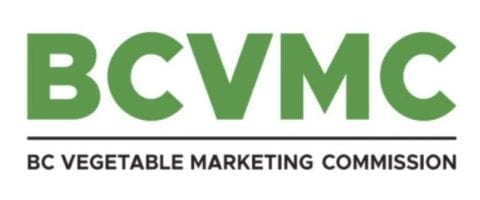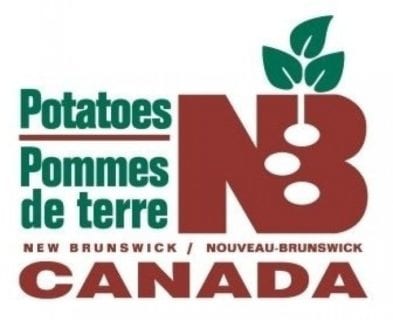
Manitoba
By: Dan Sawatzky, general manager of the Keystone Potato Producers Association
Risk is a word growers in Manitoba know all too well. Weather remains a major risk even as growers have set out to address it through irrigation and tiling. Extremes in heat and cold affect yields and quality. Disease and insect severity changes from year-to-year as does the effectiveness of the products registered to combat them. The threat of the discontinued registration of effective products is also a risk. Market downturns, although not new, are always something growers seldom expect, and the recent COVID-19 pandemic is no exception. The unknown territory of potentially having contracted product left in growers sheds at the end of the shipping season without payment from the marketplace is a new risk that producers simply should not have to bear.
Planted acreage for 2020 will be down in the province from the previous year. The recently completed Simplot expansion, which was gearing up to move to full production this year, will not likely realize this goal due to the COVID-19 downturn, and it will nonetheless limit the acreage drop.
Planting wrapped up for Manitoba potato growers in the last week of May, stretching out the season which began slowly on April 18. Cold temperatures and wet conditions held over from last fall put planting seven to 10 days behind average. Plants were just beginning to emerge on the early fields but were blackened off by a May 27 frost. A significant part of the crop was in the ground on May 11 when nighttime temperatures dipped to an all-time low in Winnipeg of -10.3 C. Fortunately the low in Carberry, where the bulk of the crop is grown, recorded just over -8 C. The previous week had recorded overnight temperatures dipping below freezing. Without widespread emergence at the time of writing, it is unknown how the seed has survived.
Very little April and May moisture along with a temperature of 32 C on June 1 is turning things around rapidly and improving the outlook. Winter precipitation accumulation was the second lowest on record, making it slightly better than last year. In spite of the low snowfall, growers who depend on off-stream reservoirs for irrigation did manage to fill them.
As in many other jurisdictions, potato events such as the United Potato Partners meeting paired with the spring production/Manitoba Research meeting was cancelled. The upcoming Industry Golf Day has also been cancelled. Other meetings are uncertain as we move toward the lifting of restrictions related to COVID-19 and begin to figure out how to safely proceed in light of the pandemic.
Prince Edward Island
By: Mary Kay Sonier, seed coordinator with Prince Edward Island Potato Board
This situation with COVID-19 has affected the potato industry in all provinces and exaggerated the vulnerability of our industry to a host of factors. This has caused major disruptions in the supply chain, demand, labour availability, etc. As essential businesses, our farms and processing companies have continued to operate with many modifications made to adhere to provincial public health guidelines. Farmers are doing what they do best, which is to adapt with creative solutions to the changing conditions.
We thank both the provincial and federal levels of government for the assistance potato growers have received so far. We realize there is still hurt and anxiety in some areas and our organization continues to advocate, in cooperation with the Canadian Potato Council, for help where there are gaps.
The planting season in P.E.I. was favourable with minimal weather delays. Processing cuts were less than expected in our province and many other areas. We are watching the phased in reopening plans in regions throughout the world and hope to see a successful restart of economies and our markets for all forms of potatoes.
This crisis has made us all become more familiar and reliant on electronic forms of communication and alternative ways of conducting business to keep staff and those we deal with safe. There is much uncertainty still ahead and we have put together a webpage to help keep our growers up to date at https://peipotatoagronomy.com/covid19/. We wish everyone a successful growing season in 2020.
Ontario
By: Kevin Brubacher, general manager of the Ontario Potato Board
Planted acreage in Ontario is expected to remain similar to last year despite the COVID-19 pandemic. Ontario producers are expected to plant approximately 34,000 acres of potatoes this year. This estimated acreage will be verified in mid-July when our planted acreage survey is complete.
The COVID-19 pandemic has definitely had a negative effect on the potato market in Ontario. Fortunately for our industry, these effects have not been as great as in other parts of the country. Our chip industry has remained strong and the fresh market stable. Decline in food service demand has made it tough for producers supplying to those markets.
At the time of writing this in mid-June, the majority of acreage has been planted. Spring conditions have been favourable and early crop potatoes are looking healthy. Some areas have been quite dry over the past two weeks but anticipated rain in the forecast would provide some much-needed relief.
Normally I would take this opportunity to invite you to our field events which usually take place throughout the summer. Unfortunately, due to the current situation we can confirm the Potato Research Field Day at the Elora Research Centre has been cancelled. We have not made an official decision yet regarding the Ontario Potato Field Day held at HJV Equipment in Alliston, Ont. However, with the current limitations on public gatherings in our province, it seems unlikely this event will take place. We are working towards some form of a virtual field day in any case. Please feel free to reach out to the board office for details and dates as the summer progresses.
British Columbia
By: Hugh Reynolds with Reynalda Farms in Delta, B.C.
The weather is never perfect. It will start to rain if you drive a load of seed to the field. In British Columbia this year, weather has been fair and the balance of rain to sun has allowed windows of planting such where we have been able to finish without going deep into June.
Early planting happened as planned and early Warbas are being dug. B.C. will be switching to skin set sales as normal in July.
The rain we have received has not been excessive and we expect no fields to be abandoned. In fact, we expect the crop to be of good quality and size for 2020.
Food service sales from the 2019 crop have been slow. However, the trade has stepped in and are helping us move these to the fresh market.

New Brunswick
By: Matt Hemphill, executive director of Potatoes New Brunswick
Mother Nature has cooperated, for the most part, for the 2020 planting season in New Brunswick. Volume cuts from the processors are around 15 per cent due to the closure of food services globally. Table and seed acres will be flat or slightly down in the province.
The marketing of the 2019 potato crop has been anything but normal. The COVID-19 pandemic has put the potato industry globally in turmoil, so therefore processors, fresh packers and seed growers have been scrounging to try to divert raw potatoes into any possible channels.
Millions of pounds of potatoes have been donated to food banks, others have been moved to cattle feed and even some to a digester to be converted into energy — some were even buried as a last resort.
These diversion plans have cost the industry millions of dollars in lost revenue. We remain optimistic the industry will rebound, and things can get back to normal.
The announcement by the federal government for the $50 million food surplus program was disappointing. It’s unfortunate the program eligibility starts June 15 and is not backdated to help the industry be compensated for as early as late March when the pandemic started.

Saskatchewan
By: Matthew E. Lawless, president of the Saskatchewan Seed Potato Growers’ Association Inc.
The 2020 season has certainly been an interesting one so far for seed potato growers in Saskatchewan. At the end of February, most of our members had their seed lots sold and were beginning to put shipping plans in place. By the end of March, the massive downturn in global french fry sales led to volume decreases/contract cancellations for our growers with processing varieties, particularly for Shepody and Russet Burbank varieties. Left with few options, our members were encouraged to destroy their surplus inventory. On the other hand, red and yellow seed sales increased to a point where our members were unable to meet the demand. Many customers, especially home gardeners looking for red and specialty varieties, were turned away as supplies diminished.
Seed shipping and planting, as always, were busy times for our members. This spring was noticeably cooler and wetter across Saskatchewan, and this delayed planting in several potato growing regions, especially in the Far North. The soil was slow to warm, and there have been reports of delayed and uneven emergence in some areas. Heavy rainfall across the province over the first week of June led to washouts in planted fields and further delays for members trying to finish planting. By mid-June, most of the seed potato acres in Saskatchewan were planted, save for a few acres of high generation, short season varieties. Our members have also been contending with unusually high winds this season. These unrelenting winds have made spraying operations near impossible most days, and there are some reports of crop damage due to wind.
We at SSPGA wish our fellow growers across the country a safe, happy, and productive growing season. Mother Nature may be ever challenging, but as farmers, we’ve always been up for that challenge.













